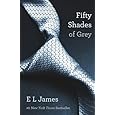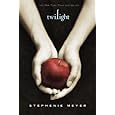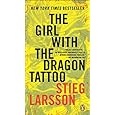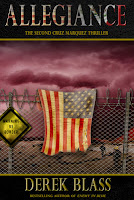 The newest guest blogger in the “best and worst I have ever done — as a writer” is Michele Chiappetta , known to her fans and Twitter followers as the Chipper Muse. As usual, my guest post will appear on her blog — but read her words, first. You’ll be glad you did!
The newest guest blogger in the “best and worst I have ever done — as a writer” is Michele Chiappetta , known to her fans and Twitter followers as the Chipper Muse. As usual, my guest post will appear on her blog — but read her words, first. You’ll be glad you did!And the stories of writers having tremendous success in self-publishing imply that all you need to do is write it, and they will come, emerging from the cornfields of Iowa with their e-readers. Especially if you’re selling something for 99 cents.
In today’s publishing environment, does it actually matter whether your writing is good, bad, or ugly?
For any serious writer, I think the answer is yes. Writing is a business and an art; you have to know what is good and what is bad because it affects your sales, and because it shapes how you pursue your artistic vision.
But since your definition of good and bad writing may not be the same as the readers who buy the books, you have to figure out how you’ll evaluate yourself so you can improve at your craft and satisfy your goals.
Obviously, good writing begins with the basics, the things we all can agree on: using correct grammar and spelling, proofing your work to make sure you didn’t leave out words, using proper paragraphing, laying out your book so that it is easy on the reader’s eye, and so on. But beyond that, what makes your writing good, bad, or even ugly?
I’d say good writing is something I’m proud to put my name on. It rises to high standards of quality. It contains creative, musical phrases that entice without being exhaustingly purple. It catches the reader up into a magical swirl of catharsis. It entertains. It’s accessible. It honors reader expectations of the genre. And most importantly, it conveys the message I want to share.
I’ve had plenty of personal experience with the good, the bad, and the ugly in my years as a writer. But you know, if you hit bottom, you can only go up, right?
When I was bad
My personal worst piece of writing was the first draft of a short story I created for a weeklong creative writing seminar at Manhattanville College. I wrote the piece in second person, present tense, as an experiment, and I have since shredded the original, horrible draft for my own sake. I don’t want the evidence to condemn me or, God forbid, be published after I’m dead.
You walk along the lonely streets, noticing how dirty they are, noticing the stink of garbage and thinking that your whole life stinks just as bad. You hate your life, you hate how unfair everything is, and you just wish it would all end. No one has it as rough as you, and you know it. But there’s nothing you can do, and no one cares.I shared this piece with the class. Man, they hated the old guy, absolutely loathed this depressed, critical, grumpy old man. In fact, they hated him and the overall tone so much that no one wanted to read any further. And who can blame them, right? Whiny people are annoying.
But I learned several important lessons about making my writing good that day:
- Sometimes the critique group is right. Sometimes, the truth is harsh, and you’ll be humiliated, but that’s okay. It won’t kill you. If you learn from it, you’ll be better off the next time you write.
- Sometimes what you think you’re doing only works in your head, and not on paper. And if it doesn’t work on paper, you didn’t do your job, so you shouldn’t be surprised when you don’t get published or paid, and your readers want your character to die.
- Good writing takes effort. It’s not easy. Don’t expect it to be. Instead, do whatever it takes to fix what isn’t working. That’s what makes you a writer instead of a wannabe.
Good writing, like a lot of things, is a combination of many factors: a unique voice, tone, theme, compelling and believable characters, dialogue that entertains and drives plot forward, eye- and ear-catching descriptions, a sense of how to make the tropes of your chosen genre work for you… If you want to be good, you’ve got to work at it.
And that means you have to risk being bad, even ugly, before you get good. You can’t afford a whole lot of pride, because it doesn’t lead to good writing. If you want to get good, you have to spend the effort, listen to others, do research, learn how to turn feedback into effective edits…
You must develop your craft by any means necessary
It’ll take many hours and a lot of words you’ll never publish, but you’ll eventually arrive at the point where you write something you don’t mind sharing on a guest blog, like this piece of a scene of my novel-in-progress:
The sheathed sword rested in an umbrella stand by the door. Hard rain drummed against the door and windows, creating a pleasant, sleepy rhythm that soothed the little girl as she stared at the sword and thought about what she wanted to do. She crouched comfortably on her heels between the washing machine and the wall. It was one of her favorite hiding places when her mother and father argued, as they did now, in the back bedroom they shared. They had obviously forgotten all about their daughter, and had given her no orders at all for a change. Their voices drowned beneath the storm’s thunder and drumming rainfall. And so she had a moment’s peace.I know that piece is not perfect. But it’s a hell of a lot better than the grumpy old man fiasco. And if I continue to learn and practice, I can only go up from here. My writing will get gooder.
Which was why the sword called to her now.
She had always wanted to see it up close, to touch it and understand it the way her father did. He spent much of his time with it; he checked each day to make sure it was where it was supposed to be. And many times, he took it and disappeared into the fields with it, perhaps to practice with it or clean it in secret. The little girl was never sure what he did. He didn’t allow her to accompany him when he took the sword out. She tried to follow him often enough, but he always managed to leave her behind and evade her spying eyes. His legs were so much longer than hers that she couldn’t keep up with him. And he was cunning.
“You’re only five,” he said to her. “You don’t need the sword yet. You’ll see it one day, when you’re ready.”
And yeah, I know that’s not a word. But I couldn’t resist. (That’s why good writers need editors, but that’s another guest blog post.)
Copyright © 2012 by M.A. Chiappetta. All rights reserved. Used by permission of the author.
M.A. Chiappetta has been writing since she was a kid. And sometimes she’s even good at it. She writes full-time as a nonprofit PR person, and part-time as a novelist and blogger. You can find her at The Chipper Muse blog, which covers writing, creativity, things that make her laugh, books and movies, and anything else that catches her attention. And be sure to like her on Facebook and follow her on Twitter, where she likes to chat real-time about real things, so that she can get to know you.






















